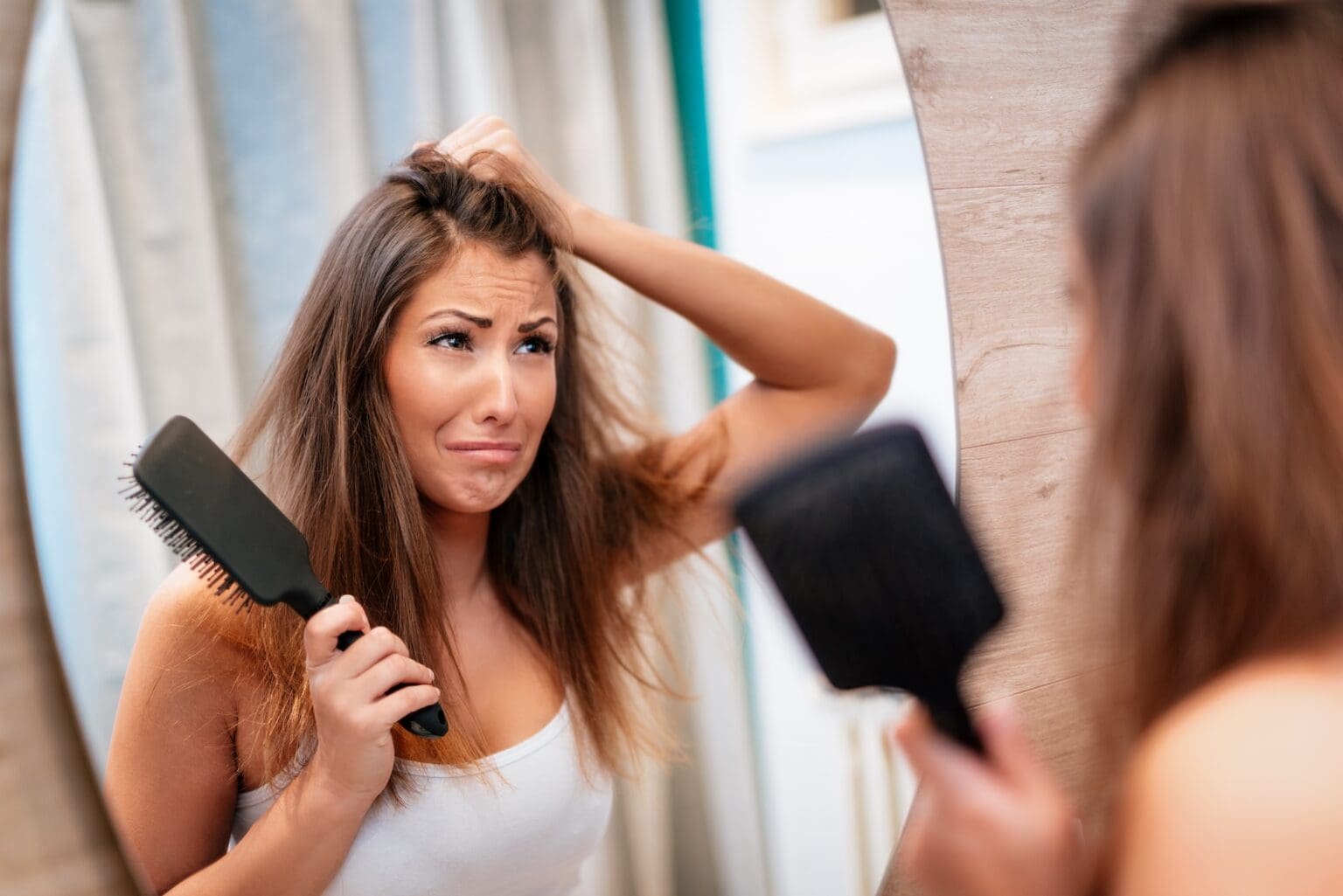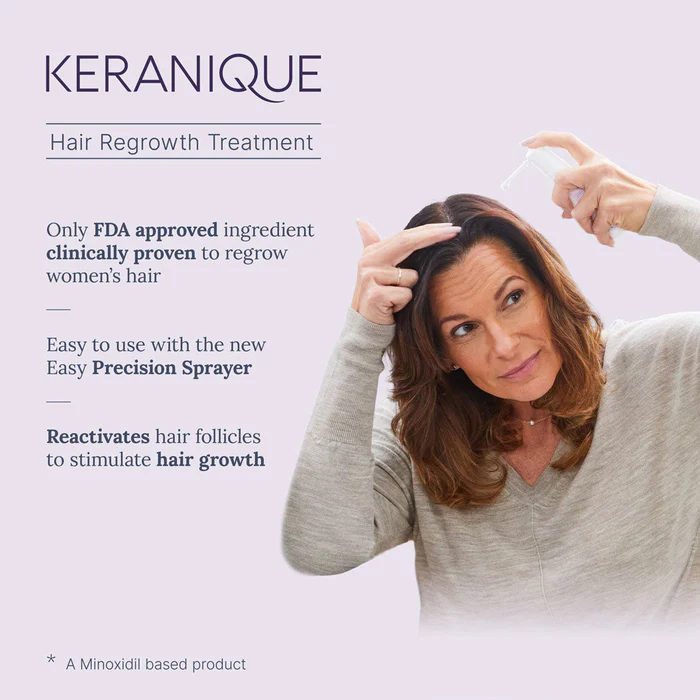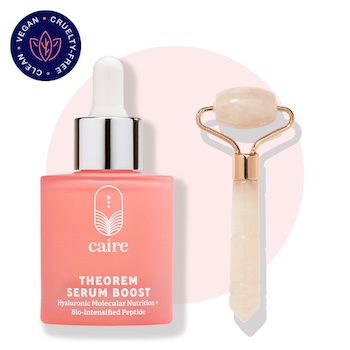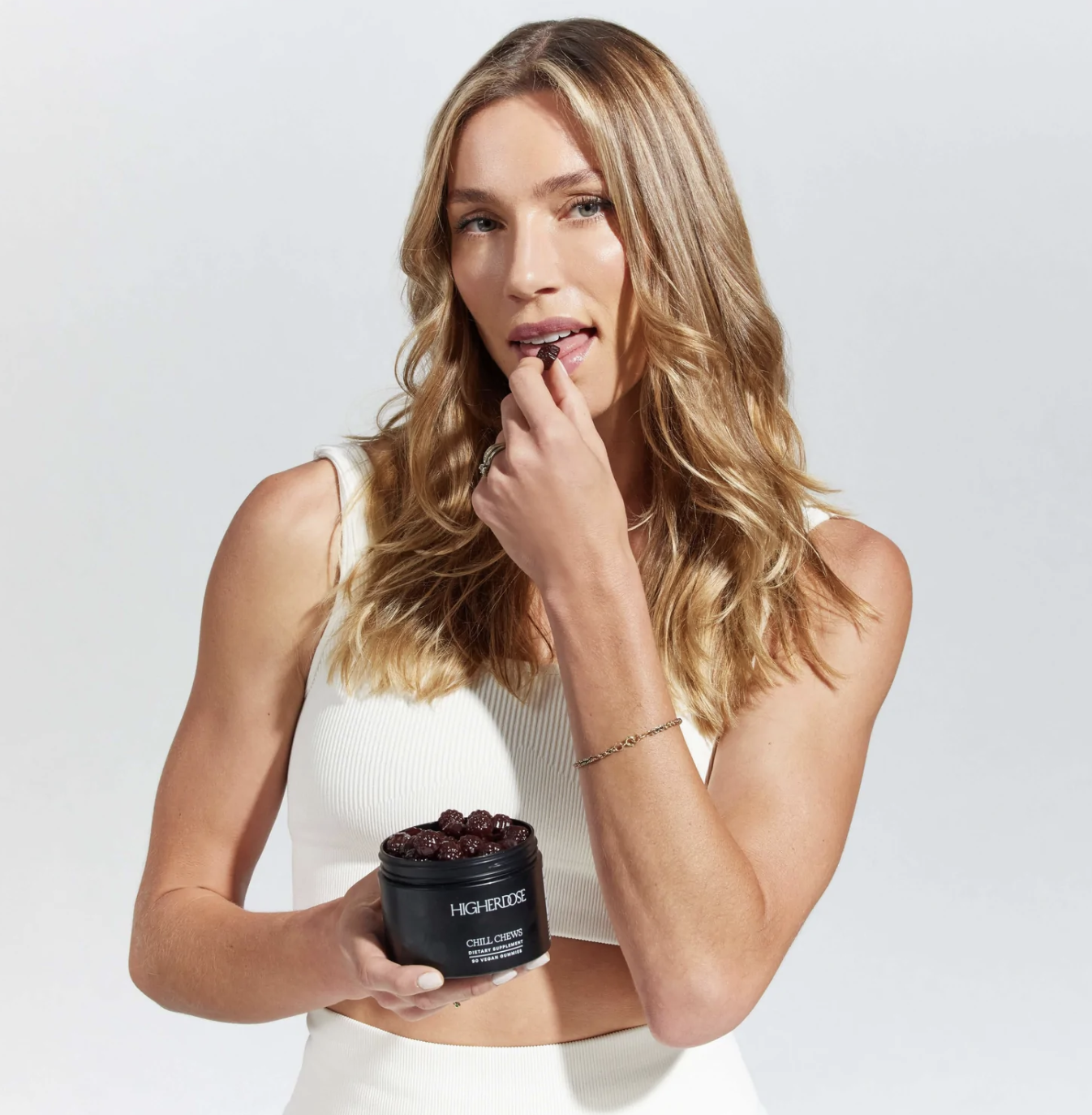Hair loss during menopause is a common concern for many women. As hormones shift, you may notice your hair thinning or falling out more than usual. This can be upsetting, but there are ways to address it.
Menopause-related hair loss is often due to lower estrogen levels, which can shorten the hair growth cycle and delay regrowth. Other hormones like testosterone may also play a role. You might see your hairline receding or overall thinning, especially at the crown of your head.
Understanding Hair Loss During Menopause
Hair loss during menopause is common and linked to hormonal changes. It can happen in different ways and at various stages of the menopausal transition.
The Role of Hormones
Estrogen and progesterone play key roles in hair growth. As these hormones drop during menopause, hair may thin or fall out.
Testosterone can also affect hair. When estrogen decreases, testosterone’s effects become more noticeable. This can lead to hair loss on the scalp.
Androgens, male hormones present in small amounts in women, can shrink hair follicles. This causes hair to become thinner and fall out more easily.
Types and Stages of Hair Loss
Female pattern hair loss is the most common type during menopause. It causes thinning on the top and crown of the scalp.
Telogen effluvium is another type. It leads to sudden, widespread shedding. This can happen during perimenopause due to hormonal shifts.
Hair loss can start in perimenopause and continue into postmenopause. Some women notice more shedding as they near menopause.
The amount of hair loss varies. For some, it’s barely noticeable. Others may lose up to half their hair volume.
Nutritional Needs for Healthy Hair
Good nutrition plays a key role in maintaining healthy hair during menopause. The right balance of vitamins, minerals, and proteins can help combat thinning and shedding.
Vitamins and Minerals for Hair Health
Biotin, a B vitamin, helps produce keratin – the protein that makes up hair. You can find biotin in eggs, nuts, and sweet potatoes. Vitamin D supports new hair follicles, so spend time outdoors or eat fatty fish. Iron carries oxygen to hair roots. Add lean meats or leafy greens to your diet.
Zinc helps repair and grow hair tissue. Try oysters, beef, or pumpkin seeds. Vitamin A keeps scalp glands working. Eat orange and yellow veggies. B vitamins like B12 make red blood cells that carry oxygen and nutrients to the scalp and hair follicles. Look for B12 in meat, fish, and dairy.
Protein and Amino Acids
Hair is made of protein, so eating enough is vital. Aim for lean meats, fish, eggs, or plant proteins like beans and nuts. Amino acids are the building blocks of protein. Lysine, an essential amino acid, may help with hair loss. You can find it in meat, cheese, and soybeans.
A lack of protein can lead to weak, brittle hair. Try to include a protein source in each meal. Greek yogurt, quinoa, and lentils are good options. If you don’t eat meat, combine plant proteins to get all essential amino acids your hair needs.
Effective Hair Care and Repair
Proper hair care and the right products can help combat menopausal hair thinning. You can improve your hair’s health and appearance with targeted treatments and nourishing ingredients.
Best Products for Menopausal Hair Loss
Look for products with ingredients that boost hair growth and strength. Minoxidil is a proven treatment for hair loss in menopausal women. It’s safe and effective for many users. You can find it in over-the-counter products.

Treat Thinning Hair
Get stronger, thicker hair in 3-6 months. Low-dose oral minoxidil is a daily pill that treats hair thinning and loss.
Rosemary oil may help stimulate hair growth. Try adding a few drops to your shampoo or massaging it into your scalp. Argan oil and jojoba oil can nourish your hair and scalp, reducing breakage.
Products with biotin, a B vitamin, may improve hair health. While more research is needed, some find it helpful for thinning hair.
Shampoos and Conditioners
Choose gentle, sulfate-free shampoos to avoid stripping your hair of natural oils. Look for products with hydrolyzed keratin to strengthen hair strands. Hyaluronic acid in shampoos and conditioners can help retain moisture.
Volumizing shampoos can give the appearance of thicker hair. But be careful – some may dry out your hair. Balance is key.
Conditioners with coconut oil can help reduce protein loss in hair. This is especially useful for fine or thinning hair. Apply conditioner mainly to the ends of your hair to avoid weighing it down.
Deep Conditioning Treatments
Weekly deep conditioning treatments can greatly improve hair health. Look for masks with ingredients like argan oil or keratin. These can help repair damage and add shine.
Leave-in conditioners provide extra moisture throughout the day. Choose lightweight formulas to avoid making fine hair look limp.
Keratin treatments at a salon can smooth and strengthen hair for several weeks. They may help reduce frizz and make hair more manageable.
At home, try a coconut oil mask. Apply it to your hair, leave it on for an hour, then shampoo as usual. This can help nourish and protect your hair.
Addressing Hormonal Imbalances
Hormonal changes during menopause can lead to hair thinning and loss. There are medical and natural approaches to help balance hormones and improve hair health.
Medications and Hormone Therapy
Hormone replacement therapy (HRT) can help restore estrogen levels and may slow hair loss. Talk to your doctor about the risks and benefits of HRT for your situation.
Medications like spironolactone or finasteride can block DHT, a hormone linked to hair loss. Rogaine (minoxidil) is an over-the-counter option that can promote hair growth for some women.
Low-dose birth control pills may help balance hormones in perimenopause. Your doctor can determine if this is right for you.
Natural Remedies and Supplements
Some natural supplements may help with hormonal hair loss. Biotin, a B vitamin, supports healthy hair growth. Try taking 2000-5000 mcg daily.
Saw palmetto is a natural DHT blocker. Consider taking 160-320 mg daily, but check with your doctor first.
Vitamin E acts as an antioxidant and may improve hair health. Aim for 400 IU per day through diet or supplements.
Omega-3 fatty acids help reduce inflammation. Eat fatty fish or take fish oil supplements.
A healthy diet rich in protein, iron, and other nutrients supports hair growth. Focus on whole foods and consider a multivitamin for any gaps in your diet.
The Impact of Lifestyle Factors
Your daily habits can affect your hair health during menopause. Stress and exercise play key roles in how your hair looks and feels.
Stress Management
Stress can make hair loss worse during menopause. When you’re stressed, your body makes more of a hormone called cortisol. This can hurt your hair follicles and cause more shedding.
Try to cut stress in your life. You can do this by:
- Getting enough sleep
- Doing yoga or meditation
- Taking deep breaths when you feel tense
- Talking to friends or a therapist
These steps can help keep your cortisol levels in check. This may slow down hair loss and help your scalp stay healthy.
Exercise and Hair Health
Regular exercise is good for your whole body, including your hair. When you work out, blood flow to your scalp improves. This brings more nutrients to your hair follicles.
Here are some ways exercise helps your hair:
- It reduces stress, which can slow hair loss
- It balances hormones that affect hair growth
- It helps you sleep better, which is good for hair health
Try to exercise for 30 minutes most days. You can walk, swim, or do any activity you enjoy. This can help keep your hair stronger and may slow down thinning.
Exploring Hair Loss Treatments
Hair loss during menopause can be managed with various treatments. These range from over-the-counter options to prescription medications.
Topical Treatments
As mentioned, Minoxidil is a popular topical treatment for menopausal hair loss. It comes as a liquid or foam and is applied directly to the scalp. You can find it in products like Rogaine.
Minoxidil works by extending the growth phase of hair follicles. This helps reduce hair loss and may even promote new growth.
Caffeine-based topicals are another option. They can boost hair growth and thickness when used regularly.
LED light therapy, especially red light, has shown promise in treating hair loss. You can use at-home devices or get treatments at a salon.

Red Light Therapy Cap
Increases blood flow to the scalp, reduces hair shedding, and strengthen hair at the root.
Prescription Solutions
For more severe hair loss, your doctor may prescribe finasteride. This oral medication blocks the hormone linked to hair thinning. Finasteride is typically more effective for men but can sometimes help women too. Your doctor will decide if it’s right for you.
Hormone replacement therapy (HRT) might be an option. It can address the hormonal imbalances causing hair loss during menopause.
Some doctors may suggest platelet-rich plasma (PRP) injections. This treatment uses your own blood to stimulate hair growth.
Investigating the Hair Growth Cycle
The hair growth cycle has four main stages that affect how your hair looks and feels. These stages can change during menopause, leading to thinning hair.
Effects of Menopause on Hair Cycle
During menopause, your hair growth cycle may shorten. The active growing phase (anagen) becomes shorter, while the resting phase (telogen) gets longer. This means your hair grows slower and falls out faster.
Lower estrogen levels can delay new hair growth. This causes more hairs to be in the resting phase at once. As a result, you may notice more hair falling out when you brush or wash it.
Menopause can also shrink your hair follicles. Smaller follicles produce thinner, weaker hairs that break easily. This adds to the appearance of thinning hair.
Promoting Hair Regrowth
You can take steps to support healthy hair growth during menopause. Eating a balanced diet rich in protein, vitamins, and healthy fats is key. These nutrients help strengthen hair and hair follicles.
Some helpful vitamins include A, B, C, and D. Omega-3 and omega-6 fatty acids are also good for hair health. You may want to ask your doctor about taking supplements if your diet is lacking.
Using gentle hair care products can protect your hair from damage. Look for shampoos made for thinning hair. Avoid harsh chemicals and heat styling when possible.
Reducing stress through relaxation techniques or exercise may also help. Stress can worsen hair loss in some people.
Dealing with Hair Shedding and Thinning
Hair shedding and thinning are common issues during menopause. There are ways to manage these problems and create the look of thicker hair.
Managing Shedding Hair
Shedding hair can be frustrating. Try gentle hair care to reduce breakage. Use a wide-tooth comb and avoid tight hairstyles.
Eat a balanced diet with protein and healthy fats. These nutrients support hair health. Consider taking vitamins A, B, C, and D. They play a role in hair growth.
Reduce stress when possible. Too much stress can make shedding worse. Try relaxation techniques like deep breathing or meditation.
Talk to your doctor about hormone therapy. It may help with hair loss linked to menopause.
Strategies for Thicker-Looking Hair
You can make your hair look fuller with the right products and styling tricks. Use volumizing shampoos and conditioners. They coat the hair to make it appear thicker.
Try a new haircut. Shorter styles can give the illusion of more volume. Layers can also add body to thinning hair.
Use styling products like mousses or root lifters. Apply them to damp hair before blow-drying. This can create more volume at the roots.
Consider hair fibers or powders. These products stick to existing hair and hide thinning spots. They come in different colors to match your hair.
Avoid heavy oils or creams. They can weigh down fine hair and make it look flatter.
Future of Hair Loss Treatment and Research
New treatments for hair loss during menopause are on the horizon. Scientists are working on exciting ways to help women regrow hair and stop thinning.
Innovations in Hair Loss Therapy
Microneedling shows promise for treating menopausal hair loss. This method uses tiny needles to stimulate the scalp and may boost hair growth. Researchers are also looking at stem cells to regrow hair. Early studies suggest stem cell therapy could help restore thinning areas.
Scientists are developing new medications to target the hormonal causes of hair loss. These drugs aim to block the effects of androgens on hair follicles. Some new treatments combine multiple approaches for better results.
You may soon have more options beyond minoxidil and finasteride. Laser caps and helmets for at-home use are becoming more advanced. Improved topical formulas with better absorption are in the works too.
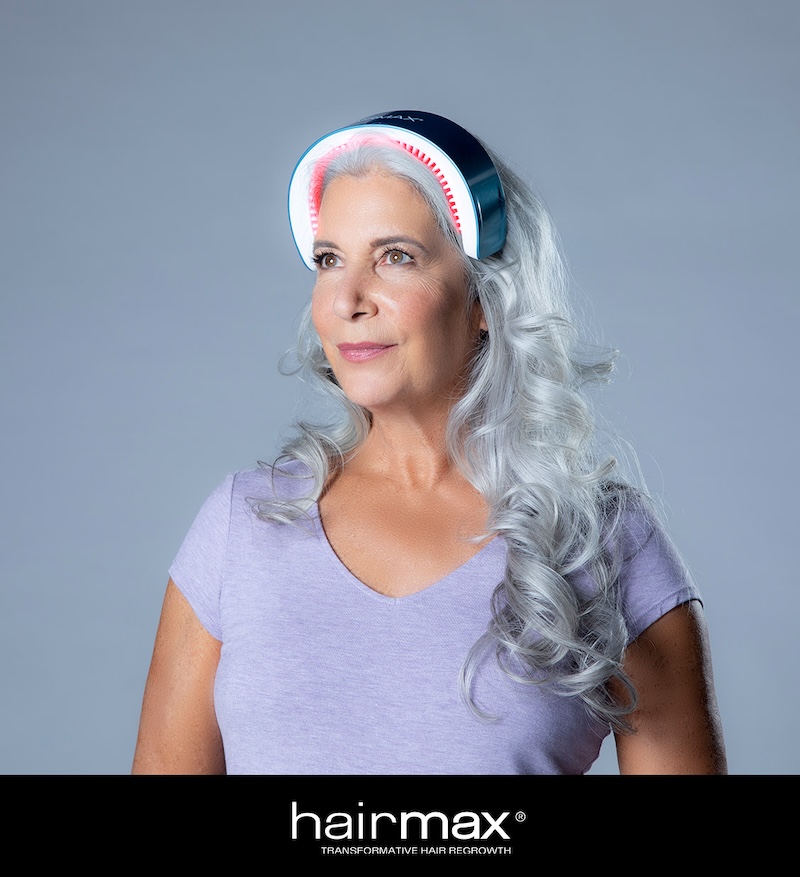
LaserBand 82 ComfortFlex
This powerhouse device targets hair loss by delivering focused laser energy to your follicles.
Personalized treatments based on your genetics and hormone levels are another area of research. This could lead to more effective solutions tailored to each woman’s needs.
Frequently Asked Questions
Many women have questions about hair loss during menopause. Here are answers to some common concerns about vitamins, hormones, regrowth, and treatments.
What are the best vitamins for thinning hair after menopause?
Vitamins A, B, C, and D play key roles in hair health. Protein and healthy fats like omega-3s also help strengthen hair. A balanced diet with these nutrients may reduce hair loss.
Some supplements contain these vitamins and minerals. Talk to your doctor before starting any new supplements.
Which hormones cause hair loss in women and how are they related to menopause?
Lower estrogen levels during menopause can lead to hair thinning. This hormone change affects your hair growth cycle.
Androgens, male hormones present in women, may also increase during menopause. Higher androgen levels can shrink hair follicles and cause hair loss.
Can hair loss from menopause grow back, and if so, how?
Some hair loss from menopause can grow back. Early treatment often leads to better results.
Minoxidil can help regrow hair in some women. Healthy habits like eating well and managing stress may also help hair regrow.
How can one stop hormonal hair loss during menopause?
You can take steps to slow hair loss during menopause. Use gentle hair care products and avoid harsh treatments.
Eat a balanced diet rich in protein and vitamins. Reduce stress through exercise or relaxation techniques. Some women find hormone therapy helpful, but talk to your doctor first.
Does biotin help with hair loss during menopause, and what is the evidence supporting its use?
Biotin, a B vitamin, plays a role in hair health. Some people take biotin supplements for hair growth.
Studies on biotin for menopausal hair loss are limited. More research is needed to prove its effects. Biotin is safe for most people, but ask your doctor before taking it.
What are the most effective treatments and shampoos for thinning hair due to menopause?
Minoxidil is an FDA-approved treatment for female hair loss. It comes as a pill, foam or liquid you apply to your scalp.
Look for shampoos with ingredients like ketoconazole or saw palmetto. These may help with hair loss. Volumizing shampoos can make hair look fuller.
Some women find low-level laser therapy helpful. This treatment uses light to stimulate hair growth. More studies are needed on its long-term effects.
As hormone levels fluctuate during menopause, many women notice their hair becoming finer and more sparse. The good news is that there are specially formulated, clinically-tested products that target the real causes of age-related hair thinning and botanically support fuller, healthier hair growth. If you’re worried about hair loss, talk to your doctor about your options.



